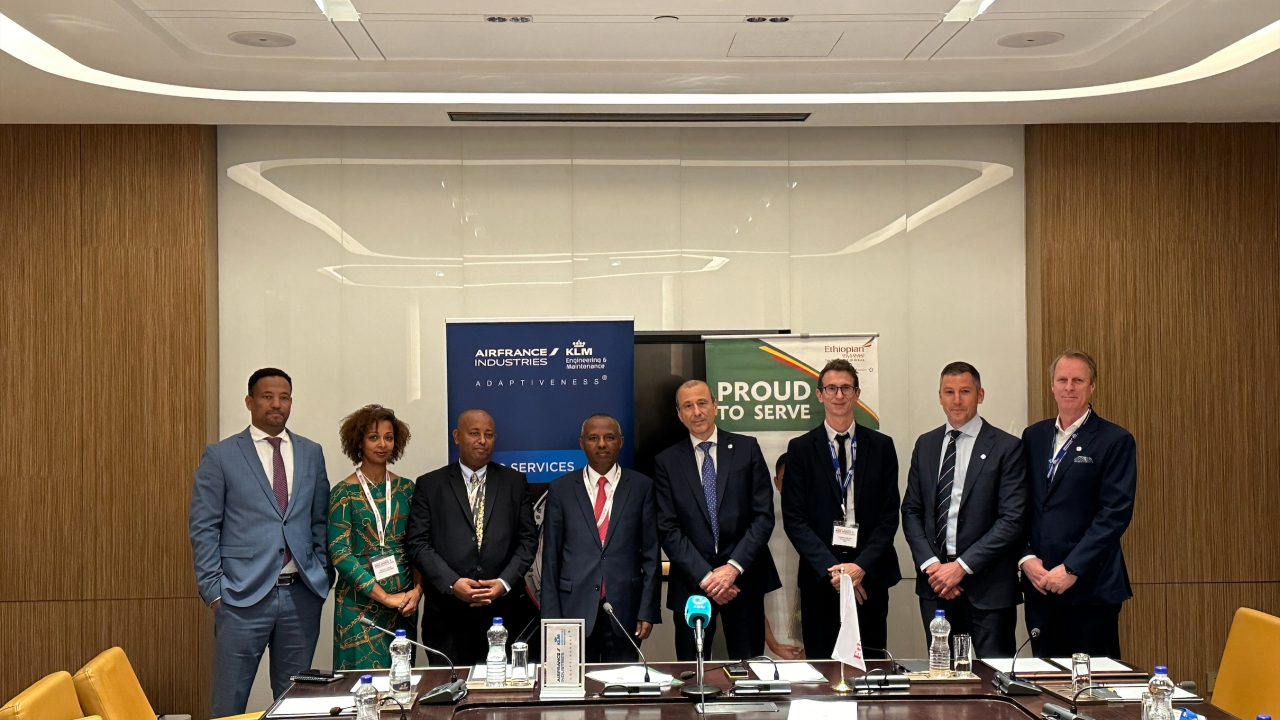ExecuJet set-up positioned to capitalise on European market
Africa’s fleet of business aircraft benefits from fully accredited MRO capabilities right on its doorstep, thanks to ExecuJet. Chuck Grieve reports.

Business aviation is an important part of the civil sector in Africa for the simple reason that travelling between the continent’s countries is often time-consuming and expensive.
The appetite among wealthy individuals, businessmen and government officials for efficient and convenient connections remains strong. It will take some time, say observers, for the impact of the recently signed single African air transport market (SAATM) initiative to filter down to the level of airline ticket prices.
But business aviation and the services that support it are facing a challenge that Vincent Goncalves, ExecuJet maintenance director, South Africa, puts down to the “dwindling numbers” of African private aircraft owners.
As the numbers of jets owned by African customers across the continent drops, he said: “We’re seeing a lot of operators from European and other continents bringing aircraft into Africa to do charter work. The two trends are just about balancing each other.”
For MRO operators such as ExecuJet, with its focus on business and regional aircraft, an increasing amount of maintenance work for European operators can only be good news.
Goncalves says the change in market composition is due to affordability. Aircraft are expensive assets; many businessmen and government officials are finding that charter also suits their needs but at a lower cost than full ownership.
European operators appear to have seen the potential in catering for intra-continental business travel, where security as well as convenience is a major draw.
These operators are opting to base their lease aircraft in Africa so that they are readily available. “This gives us an opportunity to do their maintenance,” said Goncalves.
In the jet market, “we’re seeing more wider-body aircraft because of the necessity to charter rather than fly by commercial airlines.”
On the third-party MRO side, ExecuJet mostly works with wide-body aircraft such as Bombardier Globals and Challengers, Dassault 7Xs and Falcon 900s, Embraer Legacy and the Gulfstream 400/500/600 series, owned and operated by private owners, large fleet operators and long-distance charterers.
ExecuJet has two bases in South Africa – at Johannesburg’s Lanseria International Airport and at Cape Town International Airport – as well as Nigeria at Murtala Muhammed International Airport in Lagos. There, business jet operators can tap into a comprehensive range of round-the-clock services, including aircraft maintenance and management, fixed-base operations and full concierge services, which ExecuJet offers alongside its corporate charter business.
All locations have the appropriate national and international regulatory accreditations and approvals from original equipment manufacturers (OEMs) including Bombardier, Cessna, Dassault, Embraer, Gulfstream and Hawker.
ExecuJet is an approved continuing airworthiness management organisation (CAMO) in Australasia and Europe. These approvals have been recently extended for Europe to CAMO+, enabling the MRO to issue and recommend airworthiness review certificates. The group is also certified to overseas territory aviation requirements (OTAR) and international standard for business aircraft operations (IS-BAO) codes of practice.
The company says its engineers have the expertise and resources to handle virtually any maintenance task on a wide range of business jets, turboprops and utility aircraft. In addition, said Goncalves: “We have particular stock allocated for planners monitoring the shifting maintenance requirements of all aircraft.”
An increasingly important part of ExecuJet’s MRO work is aircraft management. Under this programme, its maintenance supervision department plans and controls all maintenance work on an aircraft to make sure it is carried out correctly and efficiently. This specialist service “provides significant value” to owners of aircraft in the 5,700kg gross take-off weight range and higher, given that maintenance is a major part of operating costs.
The irregular patterns of use on many charter aircraft mean that maintenance and regular checks can be more difficult to plan for them than for their airline counterparts. To overcome this, ExecuJet utilises a continuous airworthiness maintenance programme (CAMP) that records aircraft events and uses the data to produce an overview of predicted maintenance requirements for the year ahead. “We then contact the customer and tell them the maintenance predicted, based on hours or cycles,” said Goncalves.
ExecuJet enjoys a niche market in South Africa, generally driven by the aircraft coming into the area. It’s a business that supplies “a very good service”, in the words of Goncalves, on a range of aircraft types.
Part of the Luxaviation Group, ExecuJet has its roots in Africa, having been founded in Johannesburg, South Africa. The company is now known globally for a range of services in business aviation, running from aircraft charter and sales to MRO and fixed-base operations. It prides itself on being able to provide customers with complete tailored solutions.
“We’re competitive with the rest of the world,” he said. “ExecuJet services aircraft all over the world: we’re a very capable organisation. Everyone is welcome to use our services.”
Stay up to date
Subscribe to the free Times Aerospace newsletter and receive the latest content every week. We'll never share your email address.

